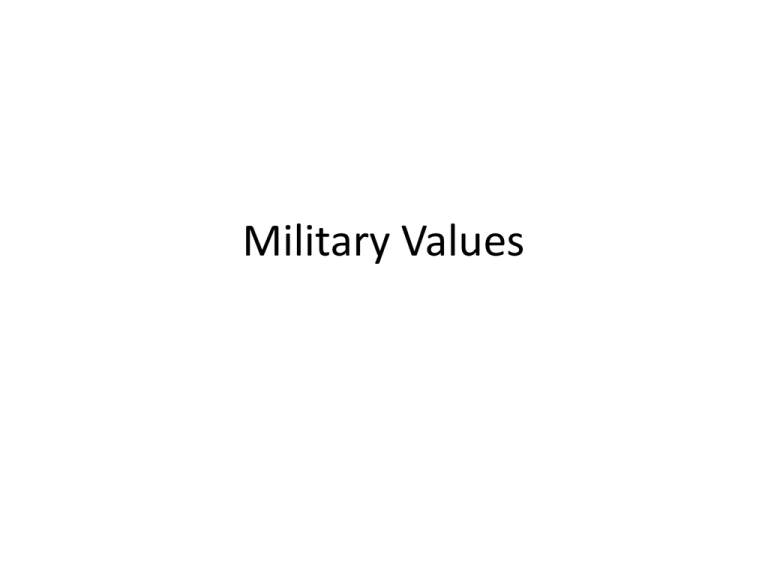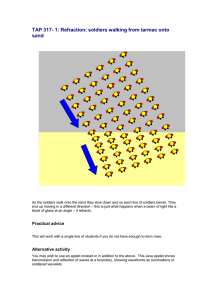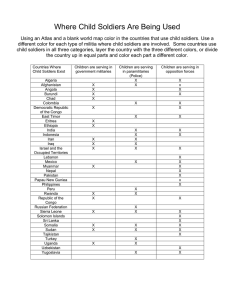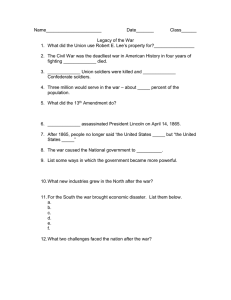Military Values
advertisement

Military Values Why the Military Does What it Does • Military values all have counterparts in the civilian world; the military differs more in degree than in kind from the civilian sphere. Some Military Values • • • • • Ceremony, Rank, and Hierarchy Uniformity Discipline and Obedience Group Cohesion Rigorous Training Uniformity • Huge personnel turnover both in peace and in war • Uniformity assists in administration, allows inspectors to count on a high degree of uniformity from place to place. Discipline and Obedience • Nothing could be further from the truth than the concept of "mindless obedience” • Many people cannot defer their own gratification, even briefly, despite consequences. • Discipline and the ability to obey are actually very highorder mental skills. – Automata make poor soldiers. – Good soldiers have to be able to adapt, show initiative, and be highly autonomous – At the same time, soldiers have to be able to recognize and respond instantly to situations that require automatic obedience. Group Cohesion • Soldiers are more effective if they can count on support and aid from their comrades • Soldiers perform mostly because they don't want to let their comrades down • Peer pressure used in military training to reinforce weak links • Mistakes on the battlefield affect everyone • Uniforms and military ceremonies reinforce group cohesion by requiring soldiers to be publicly identified with the military. • Often there is an “us versus them” mentality between the military and civilians Example: Hair Wars • Once insect-borne disease was recognized, elimination of lice became a military priority • Haircuts became mandatory • Soldiers returning from World War I were immediately recognizable • Soon short hair became the norm for men. • In the 1960's youth demonstrated their rebellion by growing long hair • The military insisted that soldiers identify publicly with the military by keeping hair short Training Military training is unpleasant; always has been, always will be. The only way to teach soldiers to work long hours under unpleasant conditions is to make them work long hours under unpleasant conditions. Wars are won by people who push the hardest Modern military literature speaks openly about "stress inducement" Training Rigorous training serves to identify people who simply cannot deal with the stress Comparatively few people wash out in reality. For many, the military is the only time in their lives they are ever pushed close to their limits. • Rigorous training fosters group cohesion by creating a unique shared experience. Elite Training Elite training (Navy SEALS, etc.) has a different goal Object is not to train a large mass of soldiers Object is to identify and train a small elite that can endure the utmost rigors and who will simply not allow themselves to be stopped by anything. Ultra-rigorous training creates group cohesion and a feeling of being members of an elite.



